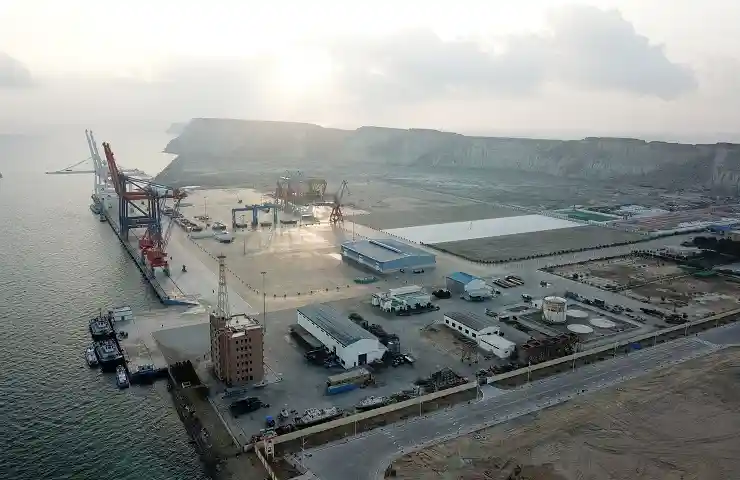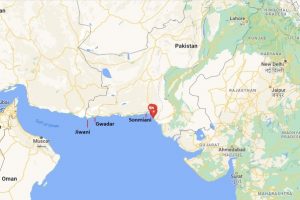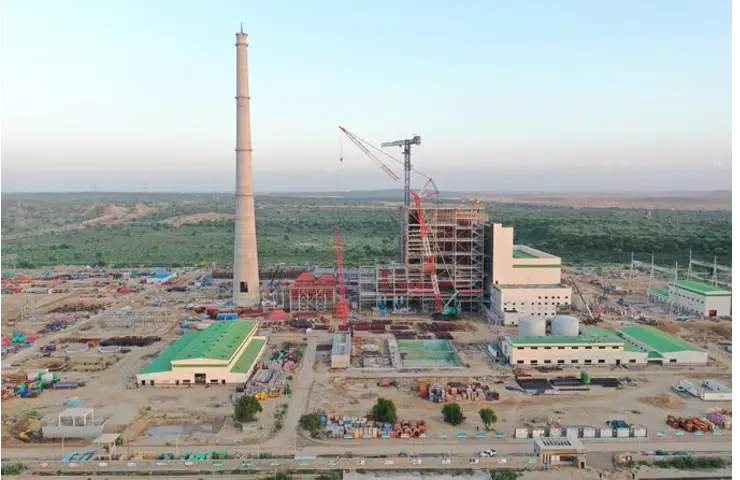Pakistan vacillates between good and bad news on its energy front. There was much jubilation about the $4.8 billion deal with China under which the latter will construct a 1,200-MW nuclear power plant, Chashma-5, cementing an already strong bond between the two neighbours.
The nuclear energy deal was signed between China National Nuclear Cooperation and Pakistan Atomic Energy Commission on Tuesday with Prime Minister Shehbaz Sharif presiding over the ceremony in Punjab province, according to Global Times.
Addressing the gathering of Chinese officials and Pakistani ministers, Sharif thanked President Xi Jinping effusively, saying: “Can’t thank Chinese leadership enough for their continued trust in Pakistan and the prosperous future of our people”. He added that investment by Beijing shows that Pakistan is a place where Chinese companies and investors continue to have trust and faith” – a statement that hides the immense friction between the Pakistani State and Chinese companies.
However, on the energy front, Pakistan has to contend with more bad news than good one.
As the country’s economy spirals downward and inflation mounts, Pakistan’s power distribution companies have upped electricity prices. Dawn reports that the companies are trying to raise an additional Pakistani rupees 27 billion from consumers at a time when the living conditions in the country have only gone down.
The report says that power generation has become costly due to low availability of hydropower and increase in power production from Liquefied Natural Gas (LNG), which has to be imported. Also, thermal power plants that work on foreign coal are not working to their optimum capacity due to non-existing imports of coal.
The country faced another setback on the power production front as it failed to secure a bid for LNG from the spot market. This is most likely to impact the Pakistani consumer in the winter. Since last year the government has had to increase power cuts, stop supply to factories and impose load-shedding upon all consumers.
Pakistan’s LNG bid did not materialise owing to poor confidence in the country’s ability to pay foreign exchange for the gas. Other factors are believed to be differences with the International Monetary Fund (IMF) and an adverse credit rating by international rating agencies.
Chinese independent power companies, which have been fuelling Pakistan’s energy sector the China Pakistan Economic Corridor (CPEC) have not made it easy for the country. Amidst suspicions and friction between the Pakistan government and Chinese companies, a new issue has emerged over the running of the 330 MW Gwadar coal-fired power plant.
The project, first conceived in 2016 at the strategic port city of Gwadar, is stalled over a tussle for imported coal between the Chinese promoter, CIHC Pak Power Company Limited (CPPCL), and Islamabad. With a severe foreign exchange problem dogging Pakistan due to which it has stalled imports of raw materials for its factories, Pakistan has refused to buy imported coal for the plant. However, the Chinese company is insisting that Pakistan import coal to run the Gwadar power plant.
Regulatory authorities are pressuring the Chinese company to use domestic coal, which the company is resisting. Adding to the tussle is the fact that prices of imported coal have shot up, adding to Islamabad’s woes.
The power plant is crucial to the development of the port city being developed by China as a multi-utility port in the mineral-rich and under-developed Balochistan province. Even for the Baloch people Pakistan has to import power from Iran.
Despite the diplomatic bonhomie between Beijing and Islamabad, Chinese companies working on the multi-sectoral CPEC have found it difficult to implement projects in the South Asian nation. Adding to their misery is the fact that owing to its poor economic situation, Pakistan has been unable to pay dues to the tune of billions of rupees to the Chinese power producers.
Also read: Beijing asks bankrupt Pak to release dues for CPEC power firms and allow import of coal



















